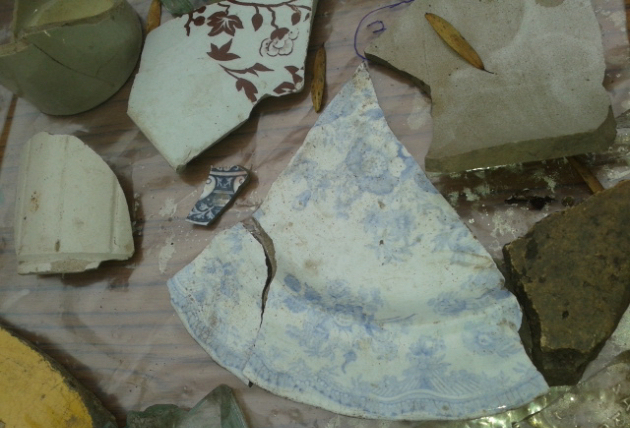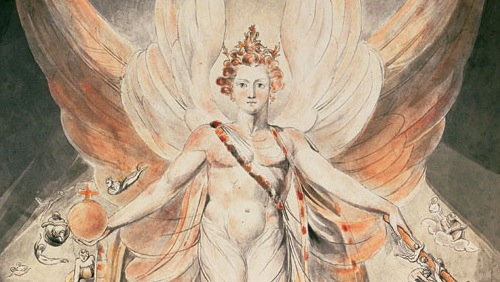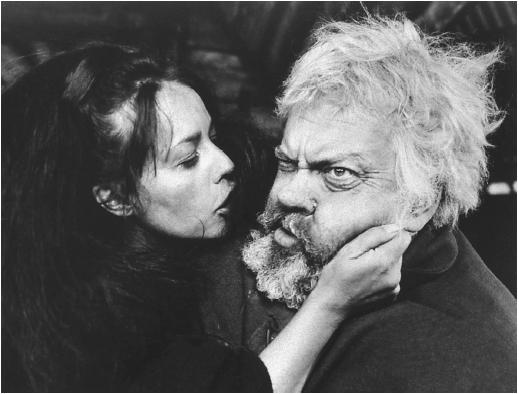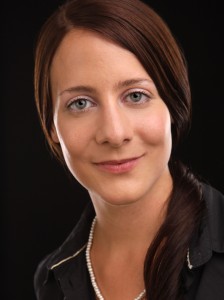News

Thursday 4 – Friday 5 June
University of Westminster and Senate House, London
Marx, Form, Isms
A Re-Enactment of the 1920s Debates
Presented by the Retro-Formalism Group in cooperation with Marxism in Culture (University of London) and the Institute for Modern and Contemporary Culture (University of Westminster)
‘Marx, Form, Isms’ continues the work of the Retro-Formalism working group on literary theory, with a specific focus on political debates. Rather than reconstructing the historical debate of the 1920s between Marxist and Formalist thinkers on how political action and experimental literature might be intermingled, the event would like to open up the text archive of formalist and Marxist thought for today and future purposes in search of an unpredictable past. Beginning with the 1920s debates in the Soviet Union, through the recovery of Formalist theory in Europe through Structuralism in 1960s and 1970s, and renewed interest in cultural critique post-1968 and in the New Left, to the contemporary revivals of discussion of form and value-form in Culture and Marxism, ‘Marx, Form, Isms’ aims to explore historical valences of Formalist theory in relation to Marxist thought.
Thursday June 4th
The Boardroom, University of Westminster, 309 Regent Street, London W1T
5:30 – 7.30 pm Keynote Lecture: John Roberts (University of Wolverhampton)
Shklovsky, Error and the End of Saint Petersburg
Friday June 5th (day event)
Room 401, University of Westminster, 309 Regent Street, London W1T
10-11am Close Reading workshop on Osip Brik’s, “The So-Called Formalist Method” (1923)
Text: osip-brik-the-so-called-formal-method-1
Presented by Anke Hennig (CSM), David Cunningham (IMCC), Anthony Iles (Mute)
11:15-12:15 Panel I: Updating the Marxism-Formalism Debate
Galin Tihanov (Queen Mary, London) Formalism and Soviet Power: A Necessary Reconsideration
Anke Henning (Central Saint Martins) Trotsky on Strindberg
12:15-1.15pm lunch
1.15-.145pm Panel II: Marxism and Formalism Today
Helen Palmer (Goldsmiths College, London) Queering Defamiliarization: Marxism, Manifestos and Matter
2-3:30pm Film Screening of Duncan Campbell It for Others (54mins)
Chaired by Anthony Iles
Friday June 5th (evening event)
Marxism in Culture Seminar, Torrington Room, Senate House, University of London
5:30 – 7.30 pm Final Roundtable: A Re-enactment of the Marxism-Formalism Debate
Participants: David Cunningham, Anke Hennig, Anthony Iles, Jan Levchenko, Marina Vishmidt
For more details please see the RetroFormalism website at: http://retroformalism.net/en/start

The Department of English, Linguistics and Cultural Studies at Westminster is offering two studentships to prospective PhD students to begin in September 2015.
Full details and application here.
Based in the heart of London, we have a lively research culture consisting of conferences and research seminars, and the work done in our two research centres, the Institute of Modern and Contemporary Culture and the Centre for the Study of Science and the Imagination.
Applications are invited for the following awards for up to three years of full-time study:
One fee waiver (Home/EU rate) and £10,000 per year for three years.
One fee waiver (Home/EU rate) and £5,000 per year for three years.
We are looking for high-quality prospective doctoral students who will contribute to at least one of the following core areas of research in the department:
Modern and Contemporary Literature and Culture
Literature and Science
English Language and Linguistics
Successful candidates will be expected to carry out a number of hours of duties in the department as part of their training and development.
Deadline for applications is 5pm on Friday 31 May 2015.
Prospective candidates wishing to informally discuss an application should contact Dr Leigh Wilson (wilsonl@westminster.ac.uk).
Full details and application here.

Wednesday 1st April, 4.15 pm
Room 215, University of Westminster, Wells Street, London W1T
“Bataille’s Vampire”
Professor Fred Botting, Kingston University
This paper follows a footnote in a short essay by Georges Bataille to examine the significance of his apparent interest in a notorious German serial killer of the 1920s and 1930s.
Fred Botting has written extensively on Gothic fictions, and on theory, film and cultural forms. His books include Gothic Romanced (2008), Limits of Horror (2008) and, with Scott Wilson, Bataille (2001).
All welcome!

Wednesday 1st April, 1-3 pm
University of Westminster, Room 106, 32-38 Wells Street, London W1T
“Technology, Desire, and Cruel Optimism: MTV’s Catfish: The TV Show”
Dr Sam McBean, Queen Mary, University of London
Taking the seminar series’ invitation to ruminate ‘On Desire’, this paper will consider the affective textures of a contemporary digital moment, focused in particular on how fantasies of desire become entangled with technology, particularly social media. The paper argues that, increasingly, narratives of technology are being mobilized to speak the narrative failings of enduring love. To explore this convergence, I will focus on MTV’s Catfish: The TV Series. Each episode of Catfish sees the co-hosts, Nev and Max, come to the rescue of someone who has been engaged in an online relationship with a partner who has been resistant to meeting in person. As online detectives, the co-hosts uncover the “truth” about this relationship – more often than not revealing that the beloved is not who they say they are. Lauren Berlant understands desire as ‘a state of attachment to something or someone’ and similarly suggests that ‘[a]ll attachment is optimistic’. Attachment becomes ‘cruelly optimistic’ when rather than enabling the self-flourishing of an individual, it becomes a barrier. The paper will explore how an attachment to a narrative of love – desire’s reciprocated ideal – and to a narrative of technology’s ability to provide this, functions in Catfish despite the repetition (in each episode and across the series as a whole) of the likely failure of both narratives.

Wednesday 25th March, 4.15 pm
Room 106, University of Westminster, Wells Street, London W1T
“Luxury and Visual Culture: On the Semiology of the Bubble Bath”
Professor John Armitage, Winchester School of Art
Luxury, abundance, and sumptuous enjoyment influence visual culture and the objects of study to which visual culture attends from art history to new media. This illustrated seminar explores various forms of indulgence and visual culture’s range of responses from images of ‘English’ luxury to images of lasciviousness and the images of ‘luxury cinema’, before going on to analyze the semiology of the bubble bath. The paper circumvents ideas relating to ideology and to the critique of consumer culture, preferring instead to concentrate on how matter dissolving becomes endowed with cultural values of cleanliness and how the foamy becomes a sign of everything from debauchery and health to happiness and even spiritual transformation. Participants are encouraged to bring their own bubbles.
John Armitage is Professor of Media Arts at Winchester School of Art-University of Southampton. John is currently co-editing Critical Luxury Studies: Art, Design, Media for Edinburgh University Press, The Luxury Reader for Bloomsbury, and writing Luxury and Visual Culture for Bloomsbury. He is the founder, and co-editor, with Ryan Bishop and Douglas Kellner, of the journal Cultural Politics.
Wednesday 11th March, 1-3 pm
Room 357, University of Westminster, Regent Street, London
“Consent, Normativity and Victim Blame”
David Gurnham, University of Southampton
The next in the Faculty of Social Sciences and Humanities seminar series of Desire at the University of Westminster. All welcome!
David Gurnham uses popular and classical texts, by authors including Shakespeare, Dickens, Euripides, Kafka, the Brothers Grimm, Huxley and Margaret Atwood to shed fresh light on such controversial legal and ethical issues as passionate homicide, life sentences, pornography and genetic enhancement. Gurnham’s overarching theme is the role of memory and imagination in shaping legal and ethical attitudes. Along this line, he examines the ways in which past wrongs are “remembered” and may be forcefully responded to, both by the criminal justice system itself and also by individuals responding to what they regard as gross insults, threats or personal violations.

Mnemonics 2015: Memory and Materialism
London, September 8 – 10, 2015
The IMCC is delighted to announce its participation in both the Mnemonics: Network for Memory Studies and (with colleagues at Goldsmiths and Kings) the London Cultural Memory Consortium with the following Call for Papers for the Mnemonics summer school to be held in London this September.
Call for papers: For the fourth edition of its annual summer school, the Mnemonics network, an international collaborative initiative for graduate education in memory studies, invites paper proposals that address the relations between materialities and cultural memory. The study of cultural memory is well versed in analyzing the material traces of the past. From the manifold historical objects that continue to inhere in the present as artifacts, ruins, traces, or even present absences, to the ways in which different representational media frame contemporary understandings of particular events through those objects, the discourses of memory studies have proven adept at investigating the use, circulation, value, and affect of historical remnants in processes of cultural remembrance. However, memory studies has so far been less attentive to the actual materiality of these objects. Accordingly, Mnemonics 2015 seeks to unearth the materials and matter that have been overlooked by present regimes of cultural memory, in theory and practice. By tracking their historical and cultural trajectories, we aim to chart the ways in which materials change over time and usage, examining the processes through which matter may be made to assemble, disassemble, metamorphose, and even disappear, to reinforce or challenge hegemonic constructions of memory and history.
Full Call for Papers can be downloaded here: Mnemonics 2015 cfp
Confirmed keynote speakers: Professor Stef Craps (Ghent University); Dr Joanne Garde-Hansen (University of Warwick); Professor Ursula Heise (UCLA); Professor Alex Warwick (University of Westminster)
Fees: £250 including accommodation in central London; £100 excluding accommodation.
All fees cover: attendance; all breakfasts, lunches, refreshments, and conference dinner.
Send: A 300-word abstract for a 15-minute paper (including title, presenter’s name, and institutional affiliation), a description of your graduate research project (one paragraph), and a short CV (max. one page) as a single Word document to: r.crownshaw@gold.ac.uk
Deadline: 1 April 2015.
Notification of Acceptance: 1 May 2015
The Mnemonics summer school serves as an interactive forum in which junior and senior memory scholars meet in an informal and convivial setting to discuss each other’s work and to reflect on new developments in the field of memory studies. The objective is to help graduate students refine their research questions, strengthen the methodological and theoretical underpinnings of their projects, and gain further insight into current trends in memory scholarship. Each of the three days of the summer school will start with a keynote lecture, followed by sessions consisting of three graduate student papers, responses, and extensive Q&A. In order to foster incisive and targeted feedback, all accepted papers will be pre-circulated among the participants and each presentation session will be chaired by a senior scholar who will also act as respondent.
Mnemonics: Network for Memory Studies is a collaborative initiative for graduate education in memory studies between the Danish Network for Cultural Memory Studies; the Swedish Memory Studies Network; and programs at Ghent University (Belgium); Goethe University Frankfurt (Germany); The London Cultural Memory Studies Consortium (IMCC, Westminster; Goldsmiths; Kings); the University of Illinois at Urbana-Champaign (USA); and Columbia University (USA, associate partner).
Further information about the network is available from the Mnemonics website at http:// mnemonics.ugent.be/.
Mnemonics on Facebook: http://www.facebook.com/groups/mnemonics.network/
Mnemonics on Twitter: @mnemonics_net
For more information on Mnemonics 2015, contact Lucy Bond at l.bond1@westminster.ac.uk
A more detailed Call for Papers is attached here: Mnemonics 2015 cfp.

Wednesday 4th March, 4.15 pm
Room 215, University of Westminster, Wells Street, London W1T
“Speechless Shakespeare”
Gwylim Jones, University of Westminster
In the opening scene of A Midsummer Night’s Dream, Theseus says to Hippolyta: ‘I … won thy love, doing thee injuries, / But I will wed thee in another key’. The bride-to-be has no more lines in the scene. Similarly, Measure for Measure’s Isabella is bereft of words to respond to the Duke’s abrupt wooing in the play’s finale. These are just two of Shakespeare’s great suggestive silences – rich and ambiguous spaces for actors and directors to fill – and their presentation on the stage can characterise the production as a whole.
These moments, key to rehearsal rooms and theatre reviews, have received little attention from literary and performance scholars. When the silences are less obvious – Claudio’s in Measure is even more capacious than Isabella’s – the response is even slighter. This leaves many questions unanswered. How does the acknowledgement of silence affect our approach to the re-emerging emphasis on character? Or on Shakespeare’s engagement with rhetoric? How did Shakespeare’s treatment of silence develop over his career? This paper will examine some of the ways in which silence can be read in the work of Shakespeare and his contemporaries, and will show how these writers develop and manipulate silences in order to represent authority and interiority.

A magnificent and heart-felt guest blog by our own Michael Nath at interestingliterature.com on writers and their lungs, from Lawrence Sterne to Proust.
As an extra distraction from the job of writing his life, Sterne gave his own worst organ to Tristram Shandy. Before we object to such a dubious gift, let’s marvel at the wrapping, that image of fluency contending with nature – not to mention the ‘Flanders’ effect (over the sea/close as the garden). Pickling disease with mirth, Tristram reports an episode of haemoptysis at the sight of a cardinal pissing with two hands. For the weak of lungs, every laugh is a dice throw. As an undergraduate, Sterne himself was already coughing blood; making it to 55 without Streptomycin must have required unusual vitality.

Wednesday 25th February, 1-3 pm
Room 357, University of Westminster, Regent Street, London
“The Queer Art of Crisis”
Nicola Smith, University of Birmingham
The third in the Faculty of Social Sciences and Humanities seminar series of Desire at the University of Westminster. All welcome!
Nicki Smith is Senior Lecturer in Political Science at the University of Birmingham and has published on a range of issues surrounding globalisation and social justice. She is currently writing a monograph on Queer Sexual Economies for Palgrave and has published articles in Sexualities, Third World Quarterly and the British Journal of Politics and International Relations.

There’s a great interview with our own Anne Witchard about her latest book, England’s Yellow Peril: Sinophobia and the Great War up on the LA Review of Books blog.
England’s Yellow Peril builds on Witchard’s previous work, looking closely at British perceptions of China and the Chinese through literature and the arts in the late-nineteenth and early-twentieth century. In England’s Yellow Peril she looks at how the outbreak of war accentuated and intensified many feelings of English racial dominance, Empire, and notions of the Yellow Peril that had arisen before the conflict. She concentrates on London’s old Chinatown of Limehouse in the East End, where swirling tales of opium smoking, gambling, and interracial romance had became synonymous with the presence of the Chinese.
You can read the interview here: http://blog.lareviewofbooks.org/chinablog/yellow-peril-sinophobia-great-war-qa-dr-anne-witchard/

Wednesday 18 February, 6.00 pm
Fyvie Hall, University of Westminster, 309 Regent Street, London
Professor Alex Warwick, “An Unnatural History of London”
An invitation to our own Alex Warwick’s inaugural professorial lecture at Westminster.
Archaeology had a profound impact on Victorian culture. As it emerges as a professional scientific practice in itself, it is also implicated in many of the century’s important debates. From the dramatic excavations at Pompeii in the late eighteenth century, through the arrivals of impressive objects like those found in Mesopotamia by Austen Henry Layard, to the troubling discoveries of human remains alongside extinct animals, archaeological digging produced objects and ideas that disturbed, excited and entertained the Victorians. The excavated cities held a special fascination, not least through the suggestive effect of the presence of the fragments of once-powerful lost civilizations in London’s museums and galleries. At the same time, London’s own buried history made its way to the surface.
As engineers dug foundations for new buildings or constructed tunnels for the underground railway, the new sewer system or gas pipes to light the street, they uncovered the cities of former times, paradoxically drawing attention to the antiquity, even the pre-history, of London. Just as the modern fabric of London is built on its own ruins, so archaeology proved a powerful force in negotiating the new conditions of capitalist modernity.
In the writings of archaeologists themselves, and in fiction, poetry and other popular texts of the period, archaeological objects, processes and sites become a means of engagement with the present and the unprecedented changes taking place. That nineteenth-century engagement continues to influence us now, more than a hundred years later.
Tickets for this event are free of charge, please register online.

Wednesday 4th February, 4.15 pm
Room 215, University of Westminster, Wells Street, London W1T
“The Two Faces of Memory”
Professor Mark Currie, Queen Mary, University of London
In My Struggle, Knausgaard claims to remember nothing from his early life while producing volumes of detailed memory. This paper aims to establish philosophical co-ordinates for this paradox, in the relationship between memory and imagination, the dynamic of remembering and forgetting, and the externalization of memory. It draws on the work of Bernard Stiegler and his elaboration of retentional finitude in Time and Technics. The argument focuses on the motif of the face in Knausgaard, as an object of recollection, and as a mode of enquiry into the nature of memory.
The Institute is delighted to welcome Katharina Donn as our Junior Visiting Research Fellow for Spring 2015.
Katharina’s main area of research is in contemporary American Literature. She is particularly interested in the ethics and aesthetics of imaginative literature in the face of trauma and terror. Katharina was a lecturer in American Studies at Augsburg University from 2011-2014, and received her doctorate with a thesis entitled Emergent Wounds: Poetics of Trauma after 9/11. As a fellow of the Studienstiftung des Deutschen Volkes (German National Academic Foundation), she worked on a funded interdisciplinary research project concerned with the 9/11 attacks and is currently developing a new project on embodiment and affect, Material Metaphors: Practices of Knowledge in Modernist Literature.

Building on the success of last year’s series on Violence, the Faculty of Social Sciences and Humanities at Westminster is pleased to announce a new series of open and interdisciplinary seminars this semester on the theme of desire ..
All seminars will be held in room 357 in the University of Westminster’s Regent Street building from 1-3pm. All welcome.
Wednesday 4 February:
Naomi Segal, Birkbeck, University of London
“Taking Your Skin-Ego for a Walk”
Wednesday 11 February:
Maria Aristodemou, Birkbeck, University of London
“Desire – Law = Disquiet”
Wednesday 18 February:
Phil Carney, University of Kent
“Desire and Power in the Spectacle”
Wednesday 25 February:
Nikki Smith, University of Birmingham
“The Queer Art of Crisis”
Wednesday 4 March:
Sam McBean, Queen Mary, University of London
“Technology, Desire and Cruel Optimism: MTV’s Catfish”
Wednesday 11 March:
David Gurnham, University of Southampton
“Consent, Normativity and Victim Blame”
Wednesday 18 March:
Helen Palmer, Goldsmiths, University of London
tbc
Wednesday 25 March:
Victoria Brooks and Adam Eldridge, University of Westminster
“On Desire”

A new year and a new series of fortnightly English Literature and Culture research seminars.
All seminars will be held in room 215 in the University of Westminster’s Wells Street building at 4.15pm, followed by the obligatory retirement to The Green Man. All welcome.
Full titles and abstracts to follow.
Wednesday 4 February: Professor Mark Currie, Queen Mary, University of London
Wednesday 4 March: Dr Gwilym Jones, University of Westminster
Wednesday 18 March: Professor Alex Warwick, University of Westminster
Wednesday 25 March: Professor John Armitage, Winchester School of Art, University of Southampton
Wednesday 1 April: Professor Fred Botting, Kingston University

Radical Philosophy Berlin Conference 2015
5 4 3 2 1…
Friday 16 – Saturday 17 January
Haus der Kulturen der Welt, Berlin
Die Radical Philosophy Conference, 2015 erstmals in Deutschland, widmet sich zentralen Themen unserer Zeit. Am Freitag, dem 16. und Samstag, dem 17. Januar diskutieren internationale Vortragende mit verschiedenen disziplinären Hintergründen die Themen Acceleration & the New, Artistic Strike, Secrecy & Surveillance, Queer Theory & Geopolitics, Pedagogization, Philosophy of the Essay-Film, Animalities, On Organization.
With Fahim Amir, Claudia Aradau, David Blacker, Christa Blümlinger, Victoria Browne, Gregoire Chamayou, Matthew Charles, Claire Fontaine, David Cunningham, Antke Engel, Frank Engster, Arianna Ferrari, Peter Hallward, Gertrud Koch, Esther Leslie, Stewart Martin, Mark Neocleous, Peter Osborne, Silvia Posocco, Nina Power, Rahul Rao, Frank Ruda, Nora Sternfeld, Hito Steyerl, Chris Wilbert, and Burkhardt Wolf. More…
Free download of the Radical Philosophy iOS app is available at the Haus der Kulturen der Welt until the 1 February. More…

Michael Nath’s exceptionally fine British Story has picked up a Book of the Year endorsement from the only newspaper that matters. Full details here: http://www.morningstaronline.co.uk/a-5f55-Arts-round-up-2014-1-2-3-4#.VKEgUQN8Bg

OK, we all know it’s destructive neoliberal nonsense, but still … hard not to offer some congratulations today. In the results announced yesterday for REF 2014 – the UK government’s periodic assessment of research across all British universities and subjects areas – there were fantastic successes for both the main units of assessment in which staff in the IMCC submit their work.
In Art and Design, Westminster were ranked third overall, only being pipped to the top spot by Reading’s specialised Typography and Graphic Communications unit and the Courtauld Institute, with a remarkable 45% of its research judged as being of ‘world-leading’ quality.
Meanwhile, in English Language and Literature, Westminster jumped nearly 50 places in the rankings to be judged overall at 28th out of 89 departments, in a joint position with the University of Edinburgh. On the assessment of publications alone, Westminster’s English submission broke into the top 20, putting it ahead of the likes of Oxford, Manchester and King’s, with around a third of its work assessed as being of ‘world-leading’ quality and nearly 80% ‘internationally excellent’ or better.
The full list of results can be found here: http://www.timeshighereducation.co.uk/features/ref-2014-results-by-subject/2017594.article
A nice start to the holiday season. See you in January.

Radical Philosophy Berlin Conference 2015
5 4 3 2 1…
Friday 16 – Saturday 17 January
Haus der Kulturen der Welt, Berlin
For our German friends, the journal Radical Philosophy will be holding its regular mega-conference in Berlin next year, with speakers including the IMCC’s own Matt Charles and David Cunningham. Other participants include Christa Blumlinger, Gregoire Chamayou, Claire Fontaine, Peter Hallward, Gertrud Koch, Esther Leslie, Mark Neocleous, Peter Osborne, Nina Power, Frank Ruda, Hito Steyerl, and many others.
Further details on the HKW website at:
http://www.hkw.de/en/programm/projekte/2015/radical_philosophy/radical_philosophy_start.php


The Institute for Modern and Contemporary Culture
University of Westminster Department of English, Linguistics and Cultural Studies
32-38 Wells Street, London W1T 3UW. United Kingdom.

